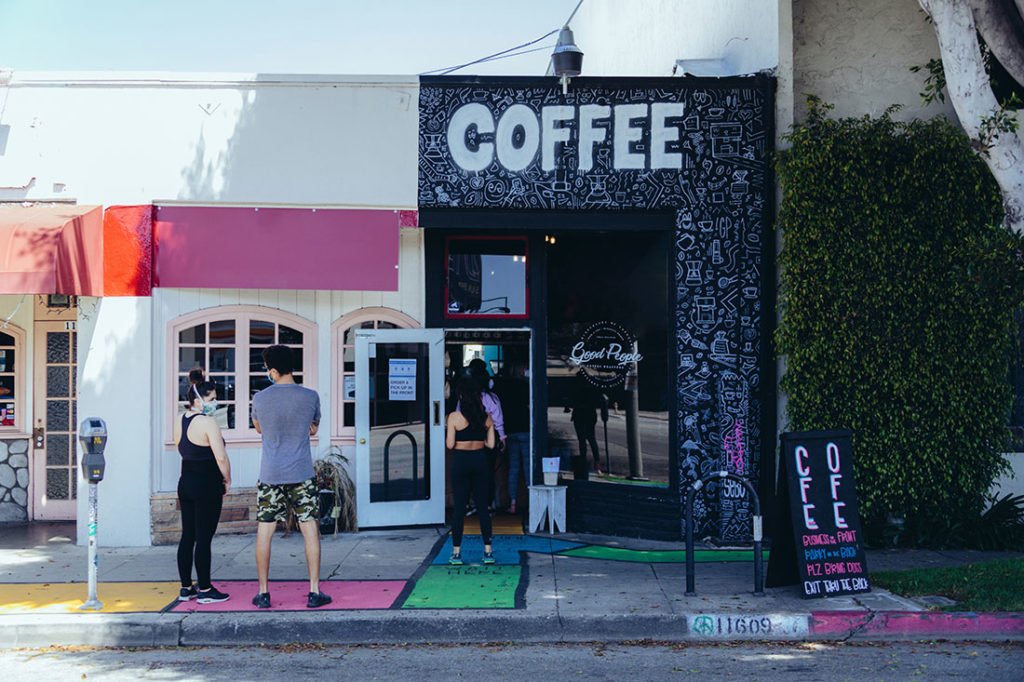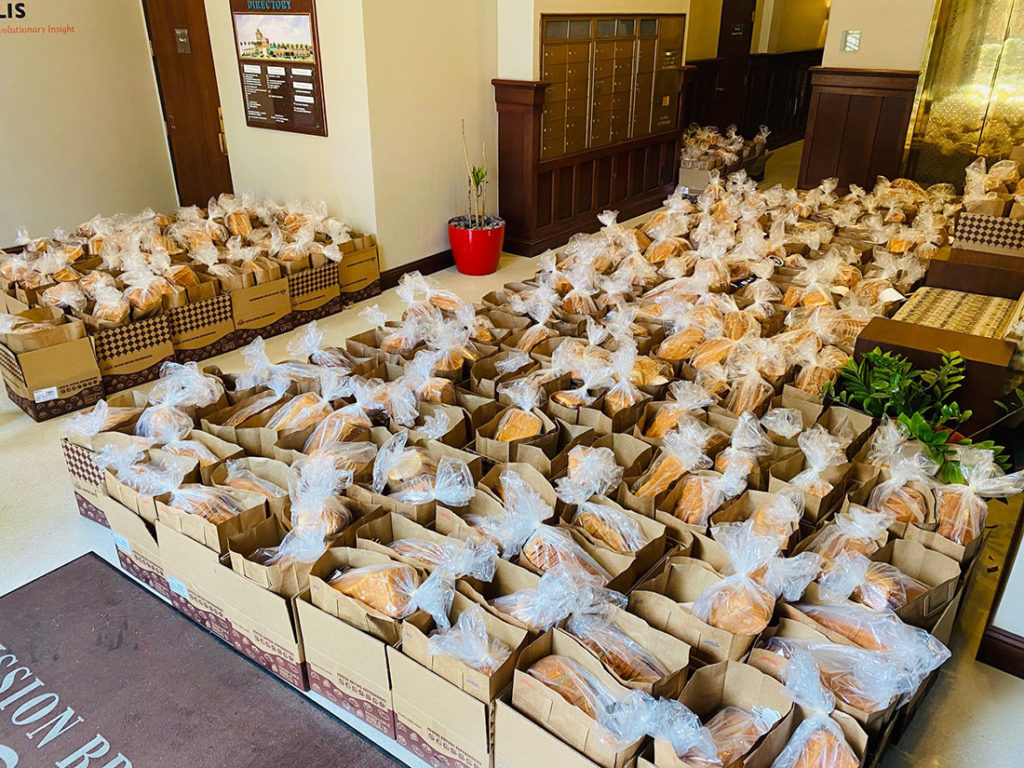As we enter the third month of this novel coronavirus pandemic threatening the safety and livelihood of millions of Americans, if nothing else I think we can agree it is a lot to take in. In just six weeks, coronavirus-related layoffs erased more than 30 million jobs, which equates to roughly all jobs created in the past decade. Small businesses account for 47% of American jobs, and according to a new survey conducted by Harvard Business Review, 45% of the 5,800 small businesses surveyed reported they were temporarily closed, and employment by these businesses had declined by 40% since the end of January. Still, many advise we likely won’t know the true affects of this virus for months to come.
In the spring, Teodor Panterov, president of Central Park Tours, typically sees up to 50 customers roll through his shop daily in search for bicycles to rent and ride through New York City’s famous Central Park. However, as New York became the epicenter of COVID-19 cases, tourism, and in turn Panterov’s business, came to a screeching halt. In March, he found himself with a store full of bikes, yet devoid of customers. What do you get when you put someone between a pandemic and a business full of underutilized resources? Silver linings, birthed by a unique combination of empathy and ingenuity.
Central Park Tours now provides its bicycles to anyone working in food delivery, free of charge. It runs the free service on the honor code; any delivery person can visit the store and trade their ID for a bike, to be returned at the end of their shift. Around a dozen delivery people utilize Central Park Tours’ bikes daily, and Panterov is working to establish a partnership with large delivery service apps like DoorDash and Grubhub so their employees can find extra support during these times.
“There are so many people out of work, food delivery is one of the few essential functions left,” Paterov says. “Having a bike is a huge advantage because you can deliver meals quicker and collect more tips per shift. It might not be much, but we wanted to help people, and we will keep looking for other ways to be supportive.”
In Mooresville, North Carolina, Baker SoftWash—a pressure washing and roof cleaning company—is exercising its essential classification as a sanitizing service to better its community.
“Spring is usually our busiest time, however we’ve seen a downturn in business,” says Shawn Baker, owner of Baker SoftWash. “While we have downtime, we want to give back to our community in whatever way we can, and that means providing a clean environment and making our neighborhoods a better place for when we can all open back up.”
The five employees of Baker SoftWash have cleaned and sanitized 12 public playgrounds, with a pending list of at least 20 additional playgrounds or schools spanning the city. Baker reports other softwash companies around the world are adopting this idea, and his company will continue to clean playgrounds even after the shelter in place order is lifted.
As more Americans find themselves un or underemployed, some companies turned to boosting public morale in comical and creative ways. Within the first week of a stay at home order, one West Los Angeles based café, Good People Coffee, began shipping a complimentary roll of toilet paper with each order. The team went on to paint Candy Land-reminiscent 6-foot tiles surrounding and throughout the store, displaying safe social distancing for patrons picking up to-go orders in a way that feels comforting rather than dystopian. A refreshing change to how most establishments feel these days. Paired with the tongue-in-cheek social distancing logos, the vibe of the café reflects the values it promotes year-round as it partners with independent coffee growers in underprivileged countries around the world—it’s a small world, let’s get through it together.
“Our world feels so different, and that chips away at the emotions,” says Chuck Herrera, creative director & co-owner of Good People Coffee. “We immediately focused on educating our staff and customers on the new procedures we are navigating during COVID-19. But we did it our way, using colors and humor; not taking light the fact that this is a global pandemic, but to remind us social distancing is only temporary. We are all going through this, and we’re doing it together.”

Small business creativity doesn’t stop there. As puzzles quickly climbed the ranks as the hottest ticket around (perhaps second only to toilet paper), one new puzzle company, JIGGY, saw demand for its puzzles spike by 200% in a matter of weeks. As a woman-owned business, JIGGY partners with emerging female artists who create the graphics for each of its unique puzzles; artists who COVID-19 has left struggling to make ends meet as galleries closed their doors. Tapping into the popularity of puzzling to support as many artists as possible, JIGGY founder Kaylin Marcotte launched “JIGGY Originals” on May 6, a virtual auction of hand-painted puzzles to raise money for artists that will run for the month of May.
“We have been sprinting to keep up with puzzle demand over the past couple of months, while we were simultaneously hearing from artists struggling as commissions dried up,” Marcotte says. “To fill this gap, we created JIGGY Originals where we’ve invited artists and some celebrities to draw their own original designs on blank white puzzles, which we will auction off, splitting the proceeds between the artists and the COVID Artist Relief fund to support the industry as a whole.”
Artists of all shapes and sizes are doing what they can to spread positivity in their own way. Boutique craft supply company and studio The Neon Tea Party is selling Quarantine Friendship Bracelet Kits and donating a portion of proceeds to Free Arts NYC, which provides free creativity counseling to 2,000 homeless children across 14 shelters in New York City. When nearly all of DJ Rob Ferre’s 50 spring events were canceled or postponed, rather than stream DJ sets from home, Ferre found a way to “break through the virtual wall” and connect with his Salt Lake City community through what he’s calling Doorstep DJ Socially Distanced Dance Parties. Families remain safely spaced apart on their own porches as Ferre rolls through neighborhoods with upbeat music sounding as a reminder for the healing powers of a spontaneous dance break. In the last month, Ferre hosted 15 dance parties with more on the horizon.
Despite a pandemic-sized threat to their bottom line, small businesses are banding together to support consumers and even competitors in need—a display of solidarity and leadership our society desperately needs.
“Our business depends on all of these other businesses and the people within them,” says Brittany Merrill-Yeng, co-founder of Skrewball Whiskey, maker of the nation’s first peanut butter whiskey. “Skrewball does not make business decisions based on our bottom line. Instead, we believe that if you help people when they need you, in time, you will receive it back tenfold. And, better yet, the world will be a better place for our kids.”
In response to the pandemic, Skrewball launched its Skrew COVID-19 campaign to raise awareness and grassroots funding for bar and restaurant industry workers suddenly out of work. To date, Skrewball has donated $250,000 to USBG’s Bartender’s Emergency Assistance Program and an additional $200K split amongst the Children of Restaurant Employees (C.O.R.E.) and the California Restaurant Association’s Restaurant Cares Program. The team of 10 also personally handed out $50,000 worth of care packages to San Diegan families in need, and diverted production to create hand sanitizer donated locally and nationally to police chiefs, fire houses and dozens of hospitals to ensure our nations frontliners were stocked with the necessary supplies.

Countless other small craft breweries and distilleries strayed from “their lane” to step up in big ways. Yet perhaps none have been busier than the sewing machines of garment workers. One boutique clothing manufacturer in Los Angeles, Suay Sew Shop, converted its entire operations to sewing face masks—and not just a normal face covering. The shop performed its own tests and created a pattern utilizing fabrics that specifically filter up to 95% of particles they could test for. In April, Suay sewed, shipped and distributed more than 27,000 free masks nationally to health care providers, essential workers, the immunocompromised, homeless and more, relying solely on community kindness through a GoFundMe to pay for supplies and wages of the 30-person staff. Suay is now selling new masks with a portion of proceeds going toward feeding LA garment workers affected by COVID-19.
These are but a fraction of small businesses meeting this moment in spite of obstacles. Small business owners across the nation are absorbing the financial brunt of this virus, and in the face of “unprecedented uncertainty,” they’ve actively chosen to lead with compassion and inspire hope, even from a distance. These businesses are the backbone of our country and remind us of what America stands for—we the people acting as “we” instead of “me.” And they deserve our attention. Large corporations can serve communities globally, but don’t overlook who’s washing your playgrounds.
So shop small, and not just on Saturdays. Prioritize the local cafés, farmers markets, independent book and toy stores in your city; and if you don’t know where to start, consider adding web browser extensions like Trestle that help you shop by your individual values, from small businesses to sustainability. Quarantine isn’t going to last forever, but if we’re not intentional, the choices we make right now might.
Read next: How to Come Together Without Being Together During This Pandemic
Photo by Michael Cedeno




